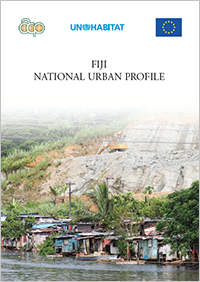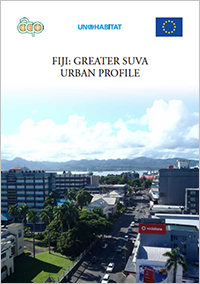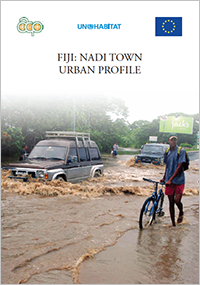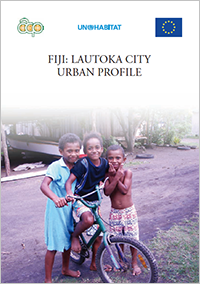Background and Objectives
Background
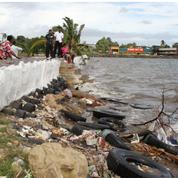
The Participatory Slum Upgrading Programme (PSUP), an initiative of the ACP Secretariat and financed by the European Commission, is currently establishing a national approach to sustainable urbanization and urban poverty alleviation in partnership with the Ministry of Local Government, Urban Development, Housing and Environment (MLGUDHE), representing the Republic of Fiji. These are aiming at formulating slum upgrading and prevention interventions, strategies as well as policies towards the implementation of Millennium Development Goal 7. The participation of the Republic of Fiji in the PSUP has been formalized through the Memorandum of Understanding (MoU) between the Republic of Fiji, Peoples Community Network (PCN) and UN-Habitat that was signed in June 2014. The programme started mid-2008 and this current phase ends 2015. For this period, the Republic of Fiji committed to institutionalize a participatory governance and urban development assessment approach for policy review, slum upgrading and prevention strategies aiming at improving the lives of the urban poor.
Objectives
The PSUP in Fiji has the vision of implementing slum upgrading and prevention strategies for all urban settlements in Fiji with a strong ownership and leadership of the community members. The PSUP therefore builds on a mid- to long-term partnership between the Republic of Fiji and UN-Habitat.
Activities
UN-Habitat partnered with the MLGUDHE, PCN and the local governments in the Greater Suva area (Lami Town, Suva City, Nasinu Town, Nausori Town, Nadi Town and Lautoka City). Fiji serves as an example for other ACP Countries, particularly the approach of the community participation and the partnership with national non-governmental organizations. Fiji has presented their nationally adapted PSUP approach to other countries following the model of South-South Cooperation, such as during regional training seminars, international conferences and technical missions. Further, Fiji is one of the initiators of a PSUP network aiming at closer exchange between government representatives for learning from each other and pushing the urban poverty agenda forward.
Results
The programme has successfully resulted in three Urban Profiles for the Cities of Suva, Nadi and Lautoka as well as the National Urban Profile.
The involvement of the community groups under PCN has fostered strong relationships with the municipal and national Government in Fiji, resulting in the launching of a series of collaborative slum upgrading projects centered on water, sanitation and housing development that are utilizing the PSUP methodology and directly contributing to the achievement of MDG 7. In this regard, a commitment to the right of participation in urban decision-making has been achieved.
Fiji has, with the support of UN Habitat carried out a preliminary study to review the housing provisions in legislations of Fiji to assist with the formulation of a Fiji Housing Act as defined in the National Housing Policy.
Ministry and city government officials have been trained on participatory slum upgrading strategies and policies as well as programme formulation, result-based management, gender, human rights-based approaches as well as planning, basic urban services, housing and land issues.
In addition to the launch of the National Housing Policy (2011), the 2013 Constitution acknowledges and commits to enabling whenever possible the rights to housing and access to water and sanitation. This is in recognition of MDG 7 Targets C and D.
Government officials have been trained on the Participatory Inclusive Land Readjustment approach and have provided feedback to the methodology development. Further, Fiji is selected as one of the pilot countries for piloting the approach in the framework of the PSUP.
The Government of Fiji was represented in the World Urban Forum (WUF7) in Medellin, Colombia and participated in bi- and multilateral consultations of the Participatory Slum Upgrading Programme.
Inclusion of the PSUP in the government budget allowing for sustainability and replication of the approach.
Development Partners: European Commission; African, Caribbean and Pacific Group of States (ACP) Secretariat
Partner: Ministry of Local Government, Housing and Environment

